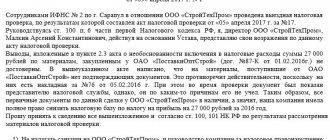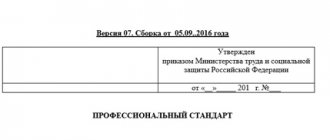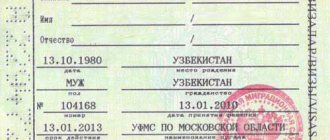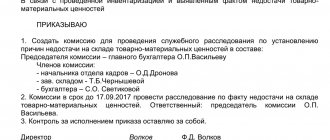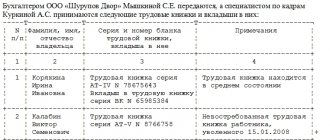When a person gets a job, he has an employment relationship with the employer, which is regulated by the norms of the Labor Code of the Russian Federation. Both parties have their own rights and responsibilities towards each other, which they must respect.
The Labor Code of the Russian Federation provides precise and mandatory conditions that must be met by an employee’s workplace, his work and rest schedule, social and other conditions that each employee must be provided with. Provision is the responsibility of the employer. If he ignores his obligations to his employees, he violates their rights.
Obviously, control is necessary to ensure that the employer fulfills his duties in good faith. By Decree of the Government of the Russian Federation No. 324 “On approval of the regulations on the Federal Service for Labor and Employment” dated June 30, 2004, Rostrud was appointed the executive body in the field of supervision of labor relations. Another name for this regulatory body is the State Labor Inspectorate.
This is a government organization that monitors and supervises compliance with current labor legislation on the part of employers, and also works with citizens who are participants in labor relations. The Labor Inspectorate has a territorial division in each subject of the federation, which reports directly to the Federal Service for Labor and Employment.
The Federal Service for Labor and Employment has its own official website, which contains all the necessary information about the powers of the inspectorate, as well as the tasks it is called upon to perform. Each territorial office also has its own official website, where you can find information about the inspection mode, as well as the rules for filing complaints.
The Labor Inspectorate is working with citizens' appeals. Employees are authorized for this purpose. They process these requests and forward them to the relevant departments, including the prosecutor's office. There are several ways to file a complaint, but the most popular one now is the electronic form of filing. On the website of each territorial department there is a form for electronic appeal of citizens.
Tasks of the labor inspectorate
Since the labor inspectorate is a state body, it was created with certain goals and objectives.
The main tasks of the labor inspectorate include:
- control to ensure that the rights and interests, as well as freedoms of citizens working for Russian employers, are fully respected. This also includes ensuring that working conditions are safe. Previously it was said that the labor inspectorate helped only workers, but now it is said that “citizens”. For example, if a citizen was illegally and without reason denied employment, the labor inspectorate refused to protect him, citing the fact that he was not officially employed. Now there is no such thing! A citizen who has been unjustifiably refused employment by a potential employer can complain to the labor inspectorate, and his complaint will be accepted and considered;
- control over ensuring that all working citizens receive timely and full material remuneration for their work;
- ensuring that workers injured in an accident at the workplace or while traveling to and from work are compensated in a timely manner and in full.
In addition, the labor inspectorate must ensure:
- compliance by the employer with all the rights and freedoms of citizens who have already entered into an employment relationship or are just about to;
- timely informing employees and employers about modern, latest and most effective methods and means of compliance with labor legislation, as well as other legal acts that are related to labor activity;
- timely bringing to the attention of authorized state bodies facts of violations, actions (inaction) or abuses that are not subject to labor legislation and other regulatory legal acts containing labor law norms, but which still occur in the workplace.
The tasks entail the powers of the labor inspectorate, which are spelled out in Art. 356 Labor Code of the Russian Federation. These include:
- exercising supervision over how the employer complies with labor legislation. Supervision is carried out at both the federal and regional levels;
- conducting a comprehensive analysis of the circumstances and reasons under which labor rights, freedoms and interests of citizens are violated;
- development and adoption of measures to eliminate the causes and circumstances of violations of the labor rights of citizens;
- consideration of cases of administrative offenses on issues of labor law;
- timely submission of relevant information to executive authorities, local authorities, as well as to law enforcement agencies and the courts;
- checking the established procedure for conducting accident investigations, as well as correct recording of such cases;
- generalization of general practice in the application of labor legislation;
- analysis of the rules for applying labor legislation;
- development and promotion of measures to improve certain areas of labor legislation;
- analysis of the causes of industrial injuries;
- development and implementation of measures to minimize occupational injuries;
- participation in the investigation of industrial accidents;
- conducting independent investigations of workplace accidents;
- accepting applications from citizens, as well as their consideration within the time limits established by law;
- development and adoption of measures to eliminate already identified violations;
- timely consultation and information to employees and employers on compliance with the Labor Code, as well as other regulations that contain labor law standards;
- checking how fully, correctly and timely the requirements for the payment of benefits to employees under compulsory social insurance against accidents or against occupational diseases acquired during work are met;
- checking the correctness of the calculation of these benefits, as well as their assignment and payments.
Did the victim perform the work assigned to him by his immediate supervisor?
All labor safety instructions for professions and types of work performed must stipulate that the employee must perform only the work that his supervisor has instructed him to do.
As a result: If the inspector receives a negative answer to any of the above questions, then there is a high chance that in addition to the victim who violated labor safety requirements, other workers, including the employer, will be found guilty.
What does the labor inspectorate check?
The Labor Inspectorate inspects those employers who have at least one employee. The Inspectorate carries out scheduled and unscheduled inspections. Planned inspections are carried out in accordance with the schedule, which is approved every year by the territorial department of the inspection. Unscheduled ones are carried out in cases where a complaint has been received against the employer.
The inspectorate also conducts on-site and desk inspections. Travel – documents are checked at the employer’s location. Desk - the employer himself brings to the inspection the documents that were requested from him.
A scheduled inspection is carried out in several stages:
- notification. Inspectors send a written notification of the inspection to the employer's legal address. They must do this no later than 3 days before the date of expected arrival. The employer, in turn, has the right to request information about those inspectors who will conduct the inspection;
- the actual verification of documents. First, inspectors make a request for the preparation of certain documents. But, before making a request, the inspector must present a certificate and an order to conduct an inspection;
- Based on the results, a report will be drawn up in 2 copies. One will be kept by the employer, and the other by the inspectorate;
- if violations are found, the inspector will issue an order containing the following information: a description of the violation and the date when it was exactly or allegedly committed;
- reference to the current law or other regulatory act containing labor law norms;
- deadlines for eliminating violations. If, after these deadlines, a re-inspection shows that the violation has not been eliminated, the enterprise will face administrative liability.
If the employer does not agree with the results of the inspection, they can be appealed through a higher inspection or through the court.
There are maximum periods during which an inspection can be carried out:
- for branches – 2 months;
- for small businesses – 50 hours;
- at micro-enterprises – no more than 15 hours;
- other employers – 20 days.
In some cases, inspectors may extend the inspection period. But, they must draw up a corresponding act and also notify the employer about this.
When conducting an inspection, the inspector has the right to demand, and the employer will be required to submit, the following documents:
- employment contracts, personal cards of employees and other data about them;
- work books of those working at the enterprise and their accounting log;
- work schedule and time sheet for hours worked;
- sick leave certificates, documents on medical examinations of employees;
- vacation schedule, as well as other documents related to it (employee statements);
- calculation sheets;
- accounting statements, individual employee accounts and other information on employee payments;
- company charter and internal regulations;
- registration of work with citizens of other states and beneficiaries;
- regulations on wages, bonuses, and personal data of employees;
- evidence (personal signatures) that all employees are familiar with the above documents.
During the inspection, inspectors have the right to:
- carry out an inspection at any time of the day, but only if you have a certificate and an order;
- receive documents both from the employer and from federal or local authorities;
- take samples of various substances for analysis, but only after drawing up the appropriate report and familiarizing the employer with it;
- conduct an independent investigation of accidents that occurred at the enterprise;
- present orders to the employer to correct specific violations;
- send materials to the court;
- take part in the meeting as representatives of the inspection or experts.
They have no right to:
- request information, documents, materials or samples that are not relevant to the purposes of this inspection;
- confiscate original documents from the employer.
When to contact the labor inspectorate
Unfortunately, quite often there are unscrupulous employers who violate the rights of their employees. The reasons for conflicts can be different:
- Personal animosity may arise between the employee and the employer, and this may lead to prejudice on the part of the employer. A subjective assessment of an employee’s actions is not an offense, although it may lead to unlawful prosecution;
- the employer constantly and systematically violates the norms of the current labor legislation, and the employee cannot come to terms with this.
The Labor Inspectorate considers disputes that may arise between an employee and an employer. These include:
- failure by the employer to comply with the rules and regulations for hiring a new employee. The most common reasons for applying include unmotivated refusal to hire an applicant. Other similar violations include: the contract does not indicate the amount of salary and other payments that the employee will receive when performing his duties;
- reception with a probationary period of a pregnant woman. At the same time, the pregnant woman herself must properly notify the employer of her situation. This must be done by presenting him with a certificate from the medical institution where the woman is registered. The certificate must be signed by the attending physician, the head of the antenatal clinic, as well as the chief physician of the medical institution;
- the employer did not familiarize its new employee with the internal regulations and other local regulations. If this does not happen, then the employer cannot bring the employee to disciplinary liability.
- the employer refused to provide annual leave;
If there are these violations, then you need to contact the labor inspectorate with an individual or collective complaint.
Was the victim trained in occupational safety and health?
Each employee must undergo occupational safety training and a knowledge test of occupational safety requirements within the first month of work. The procedure, form, frequency and duration of training for blue-collar workers are established by the employer. Managers and specialists must undergo special training in labor safety within the scope of their job responsibilities upon entering work within the first month , then as necessary, but at least once every three years.
How to contact the labor inspectorate
There are several ways to contact the labor inspectorate with a complaint:
- upon personal visit. To do this, you need to personally come to the territorial office of the inspectorate at the employer’s location and submit to the secretary a complaint, drawn up in writing and in duplicate. On one copy, the inspection secretary puts the number of the incoming document and the date the application was accepted for consideration. This copy remains with the applicant, and the other is given for consideration;
- by mail. The complaint must be sent by registered mail with notification. This notification will indicate the date of delivery of the application to the inspection and the signature of the person who accepted this letter. The notification should not be thrown away; it will serve as proof that the application was delivered to the inspectorate;
- through a representative. He must have a power of attorney in hand, which will need to be presented to the secretary when submitting the application. The procedure for filing a complaint through an intermediary is exactly the same as when filing in person - 2 copies are submitted, one is stamped with the date of acceptance and the number of the incoming document;
- through the electronic reception. The most popular way to contact the inspectorate today. There is a corresponding tab on the website of each territorial department.
To file a complaint with the labor inspectorate using the online reception, you must:
- visit the official website of the state labor inspectorate in the applicant’s region of residence;
- Find the “file a complaint online” tab. It may be called differently - “online inspection.” RF";
- select the “report a problem” tab;
- The applicant will see a list of violations of labor legislation for which he can contact the inspectorate; he must select the one necessary;
- in the selected section there may be several more subsections, from which you also need to select the one you need;
- then you need to select the result that the applicant wants to achieve;
- then you need to either register on the State Services portal or log in;
- Next you need to fill out the message form. It is not difficult! The system will prompt you with all the right steps;
- You must provide information about your employer. Data about the applicant will appear automatically, as it is in the State Services system;
- You must also indicate the method by which the response to the complaint must be communicated. It is chosen by the applicant himself.
- inspection details. These include: name - State Labor Inspectorate;
- the address to which the message is sent.
- information about the applicant: full name;
- address of the place of permanent or temporary registration;
- contact information about the applicant - telephone or email address. This is necessary to obtain a response, as well as for the inspector to communicate with the applicant, if such a need arises.
The inspectorate is given 30 days to consider a complaint from an employee. The method of delivery of the claim does not matter. If a claim sent to the labor inspectorate is not within the competence of this supervisory authority, it will be forwarded to the appropriate government agency within 7 days after receipt. He will subsequently take up its consideration. The applicant will be notified of all “movements” of the complaint in the specified manner.
In some cases, inspectors may extend the time for considering a complaint, but they must notify the complainant of this.
The law does not provide for a unified form of contacting the State Labor Inspectorate. It can be written in free form. But in order for the complaint to be considered by inspectors in the prescribed manner, it must indicate the following information:
- full or abbreviated name;
When the applicant describes the essence of the complaint, he must adhere to the rules of business correspondence and must not allow insults. Information should be presented in “dry” language. In your appeal you must indicate only reliable and verified facts. It must be objective and not express the applicant’s attitude towards the manager who violated his labor rights. Events should be presented in chronological order.


